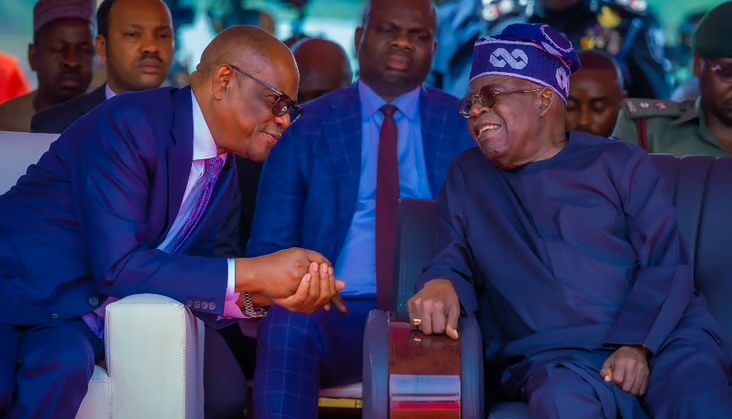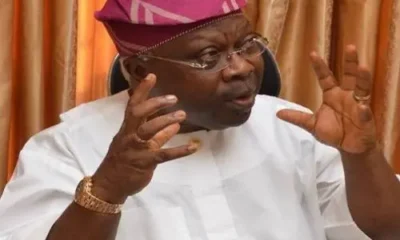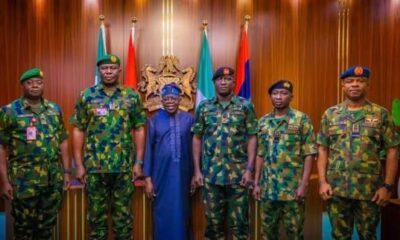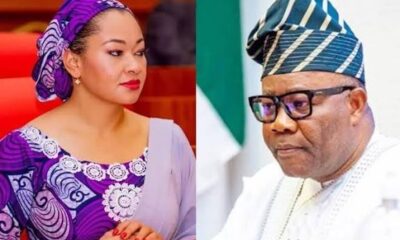Politics
Tinubu tightens his grip on the South‑South

The states of Nigeria’s South-South geopolitical zone – Akwa Ibom, Bayelsa, Cross River, Delta, Edo and Rivers – form the heart of the Niger Delta and drive Africa’s biggest oil economy. By seizing the political initiative and boosting oil revenue, President Bola Tinubu has managed a double coup.
Since 1999, the South-South has mostly leaned towards the Peoples Democratic Party (PDP). This reflex weakened in 2023 when the PDP’s ‘G5’ rebellion scrambled loyalties and opened space for Tinubu to cut cross-party deals.
The centre of gravity is Rivers, where a bitter feud between Governor Siminalayi Fubara and his predecessor, Nyesom Wike, dragged the state to the brink before a federally-brokered truce pulled it back.
Gravy train and all who ride it
Across the zone, alignments have been greased by appointments, project promises and the arithmetic of the national assembly. “Politically speaking, major stakeholders from the South-South feel it is better to queue behind a southern president and Senate president to get more federal support,” says Franklyn Isong, a political analyst in Akwa Ibom.
According to him, the combination of a president from the South-West and an ex-governor from Akwa Ibom as Senate president “would make it difficult for any governor from the South–South to survive without pitching tents with the APC [All Progressives Congress]”.
The pitch is not only partisan. It is transactional. Oil pays the bills, and the presidency has paired political outreach with a tougher line in the creeks.
“I can proudly report to you all that our pipelines and terminal crude oil receipt, which was somewhere as low as 20% to 30% some periods back, we are attaining close to 100% due to the support of the security forces and intelligence agencies,” says Bayo Ojulari, CEO of the Nigerian National Petroleum Company Limited.
The impact has been transformational for Nigeria’s international image: long-stalled investments by international oil companies are back on track, while new entrants such as Brazil’s Petrobras are eyeing the market.
Tompolo, poacher turned gamekeeper
Much of the stabilisation, operators say, rests on a mesh of public enforcement and private surveillance. A pipeline security contract awarded to Tantita Security Services – controlled by the former militant leader Government Ekpemupolo, known asTompolo – has seeded an army of local watchers along rights-of-way that were once free-for-all tapping points.
“A lot of people who were called militants back in the day have now been stationed to cover different sections of the Niger Delta,” says Adewale Dosunmu, a retired petroleum-engineering professor from the University of Port Harcourt.
The Petroleum Industry Act, with its host-community funds, has layered in a financial incentive to keep the flow steady. “It’s a political win for the Tinubu administration that desperately needed the crude oil revenue to function,” Dosunmu says.
That new equilibrium, however, has sharpened an old worry. If Abuja’s bargains with regional power-brokers deliver barrels and smoother governance in the short run, they can also tighten a web of patronage that blurs where party management ends and state power begins.
“While it remains early days, the current developments are a troubling sign for the future of competitive democracy in Nigeria, especially considering President Tinubu’s previous opposition to undemocratic manoeuvres when out of power,” says Cheta Nwanze, lead partner at SBM Intelligence, a Lagos-based research and consulting firm.
Nwanze argues that the security arrangements are at best a stop-gap: they may curb theft today, but they risk entrenching non-state actors in core state functions and will need durable institutional fixes if they are not to backfire.
History weighs on the politics
The region’s loyalty to the PDP paid off when Goodluck Jonathan of Bayelsa State completed Umaru Yar’Adua’s term after the latter’s death in 2010, and then won the presidency in 2011. That bond frayed when the PDP left its presidential ticket open rather than zoning it to the south in 2023. Five governors – the G5 led by Wike – refused to back the party’s nominee, Atiku Abubakar.
The crack widened the path for Tinubu in a zone where the presidency had long struggled. The aftershocks still shape choices today. The PDP retains strength in the grassroots and in several state houses, but defections and tactical alliances have given the ruling APC more room to operate.
The opposition’s task is to regain coherence. Some in the PDP talk of a southern ticket next time, but formal decisions matter more than chatter. Smaller parties have energy but little structure.
“The most important thing for us is to build the structure of our party across the states and to create conversations that will truly make Nigerians see us as the alternative,” says Bolaji Abdullahi, spokesperson for the African Democratic Congress.
Without a common slate and pooled resources, says Nwanze of SBM Intelligence, “the opposition does not stand a chance” and Tinubu could sweep the zone.
Performance targets for ex-militants
Whether the present calm proves durable will depend on the plumbing behind the headlines. Contracts with ex-militants need clear key-performance targets, audits and a glide path that strengthens statutory forces rather than substituting for them.
Host-community funds must be transparent if they are not to create new winners and losers. Federal promises – roads, ports, power – need execution, not ribbon-cutting. And state institutions must remain open enough for alternation: if assemblies, courts and election managers look captured, legitimacy will seep away and protest will again become the outlet for grievance.
For now, Tinubu’s double act – elite pacts onshore, tighter protection offshore – is delivering what the presidency prizes: barrels and votes. If oversight keeps pace with ambition, the grip may look like governance. If it does not, today’s stability will feel like a pause before the next shock.(The Africa Report)
-

 African News24 hours ago
African News24 hours ago11 gunned down as mass shooting rocks South Africa
-

 Politics8 hours ago
Politics8 hours agoOsun gov’ship: My disqualification a huge joke – Omisore
-

 Opinion8 hours ago
Opinion8 hours agoInsecurity and plenty conspiracy theories
-

 Business22 hours ago
Business22 hours agoBREAKING: Dantata & Sawoe ‘pays’ consultant $1.4 million Dangote project debt in bid to escape liquidation
-

 Politics7 hours ago
Politics7 hours agoHow APC, ADC Benefit From PDP Crisis
-

 Business8 hours ago
Business8 hours agoCAC To Ban Unregistered PoS Operators From Jan 1
-

 News8 hours ago
News8 hours agoBrazilian Ship Intercepted with 25.5kg Cocaine at Lagos Port
-

 News7 hours ago
News7 hours agoAkpabio Denies Filing Fresh N200bn Suit Against Sen Natasha


















